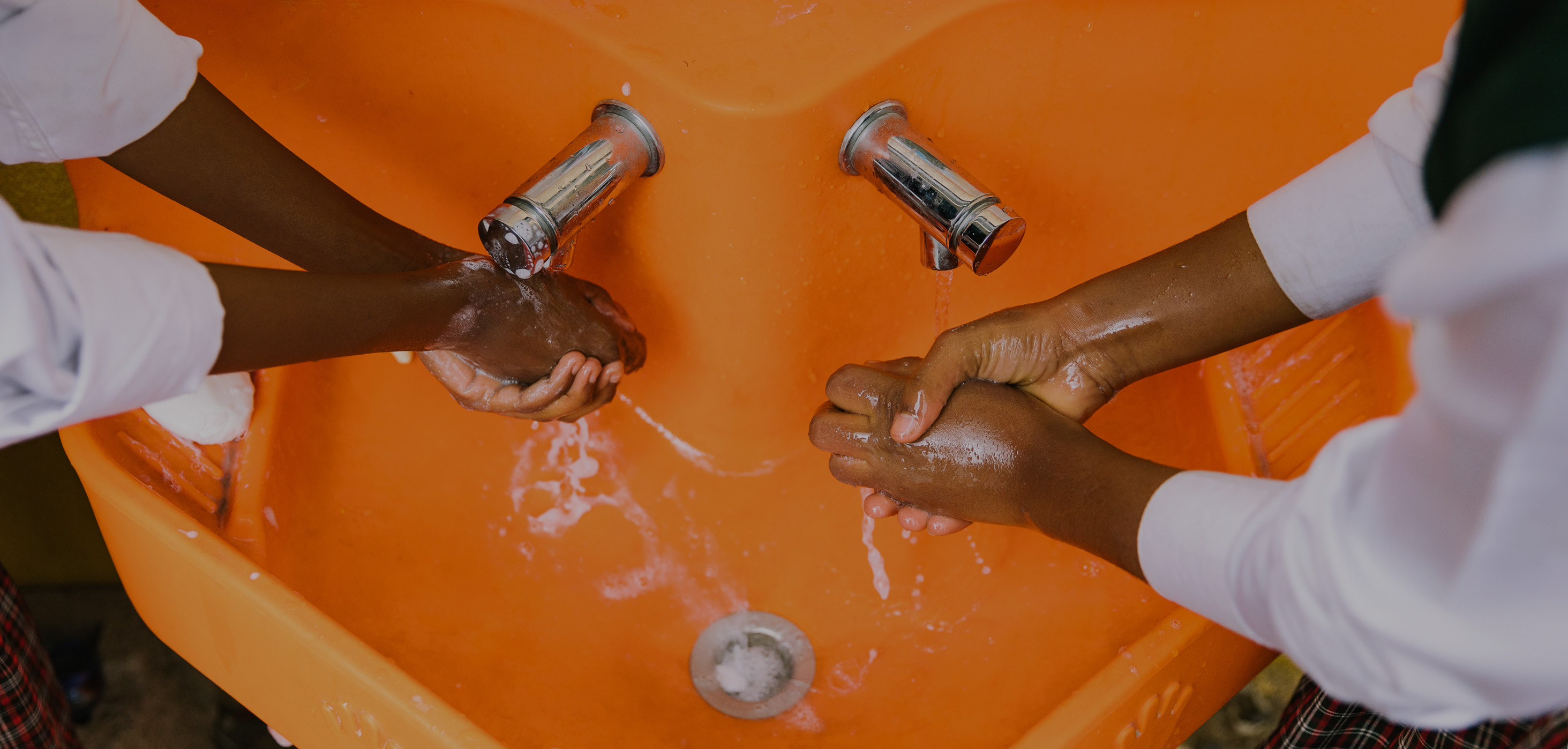Creating the conditions for routine handwashing with soap and healthy behaviors that last a lifetime.

The Challenge
Safe water and child-friendly toilets alone can’t eliminate water-borne illness: handwashing with soap is critical. It is also one of the most effective and inexpensive ways to prevent the spread of diseases, bacteria, and viruses — from COVID-19 to diarrhea — that can negatively affect health, nutrition, and development. Many schools lack handwashing stations, and students do not routinely wash their hands before eating or after using the toilet.
In Kolkata, India, while 55% of schools had a handwashing basin on the school premises, only 43% had a single functioning tap, and 6% had any soap for handwashing.
What We're Doing

Provide handwashing stations for kids to use.

Teach hygiene practices to kids through a fun, engaging curriculum.

Leverage local supply chains to make it sustainable.
Hardware that Promotes Healthy Behaviors
Splash combines our custom-designed handwashing and drinking stations with education to encourage kids to adopt and sustain hygienic behaviors like handwashing. We start by installing durable stations in strategic locations on the school campus, including near the latrines and lunch areas. These stations integrate powerful motivators and environmental nudges like mirrors and bright colors to entice children to drink clean water and wash their hands, which is now more critical than ever.
Beyond Textbooks
To amplify the shift in behavior, we deliver training programs and activities that promote drinking clean water, washing hands with soap, and properly using toilet facilities. Splash trains focal teachers who engage student hygiene clubs through a fun, interactive, activity-based curriculum. Experiential learning is key — no textbook alone can do the job.
Kids as Change Agents
Child hygiene club members serve as ambassadors to encourage healthy WASH behaviors across the school through positive peer pressure and leading activities to mobilize their entire school, from PSA announcements to school-wide events. These clubs — and the activities and curriculum we develop in collaboration with government actors — are refreshed regularly to keep children engaged, amused, and motivated.
Melesse, 5th Grade:
“As a hygiene ambassador, I am most excited about teaching other students to keep their personal hygiene. By doing this, I help keep students from getting sick.”
Leveraging Behavior Centered Design
Splash’s behavior change program is based on the London School of Hygiene and Tropical Medicine’s Behavior Centered Design (BCD) framework, which describes the process of influencing behavior through multiple pathways. From adapting the physical environment to leveraging the different ways our brains react to external stimuli, the foundation of this framework is the belief that by focusing on behavioral determinants, rather than only cognition and communication, we can better achieve sustained behavior change.
Changing Behaviors
Through the application of BCD, we have designed our program to target different brain functions, including the executive (conscious), motivated (emotive), and reactive (subconscious) thought processes. We target these aspects with a variety of complimentary interventions to compel lasting behavior change.
Bringing BCD to Life
Our handwashing intervention targets both the reactive and executive mind: our curriculum teaches children about the six steps to proper handwashing, and mirrors above the brightly colored handwashing stations attract children to use them regularly. Together, these add up to the lifelong impact of good hygiene.